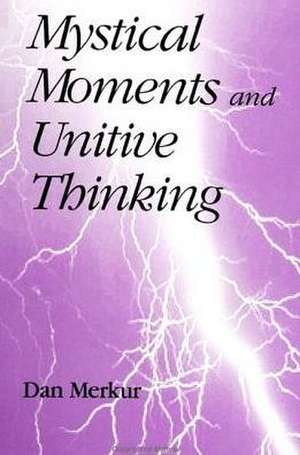Mystical Moments and Unitive Thinking
Autor Dan Merkuren Limba Engleză Hardback – feb 1999
Preț: 529.11 lei
Preț vechi: 622.48 lei
-15% Nou
Puncte Express: 794
Preț estimativ în valută:
101.29€ • 104.17$ • 84.03£
101.29€ • 104.17$ • 84.03£
Cartea se retipărește
Doresc să fiu notificat când acest titlu va fi disponibil:
Se trimite...
Preluare comenzi: 021 569.72.76
Specificații
ISBN-13: 9780791440636
ISBN-10: 079144063X
Pagini: 188
Greutate: 0.43 kg
Editura: Global Academic Publishing
ISBN-10: 079144063X
Pagini: 188
Greutate: 0.43 kg
Editura: Global Academic Publishing
Notă biografică
Dan Merkur, Ph.D., is Research Reader in the Centre for the Study of Religion at the University of Toronto and a member of the Adjunct Faculty at the Psychocultural Institute, Toronto. He is the author of several other books, including two published by SUNY Press, Gnosis: An Esoteric Tradition of Mystical Visions and Unions and The Ecstatic Imagination: Psychedelic Experiences and the Psychoanalysis of Self-Actualization.
